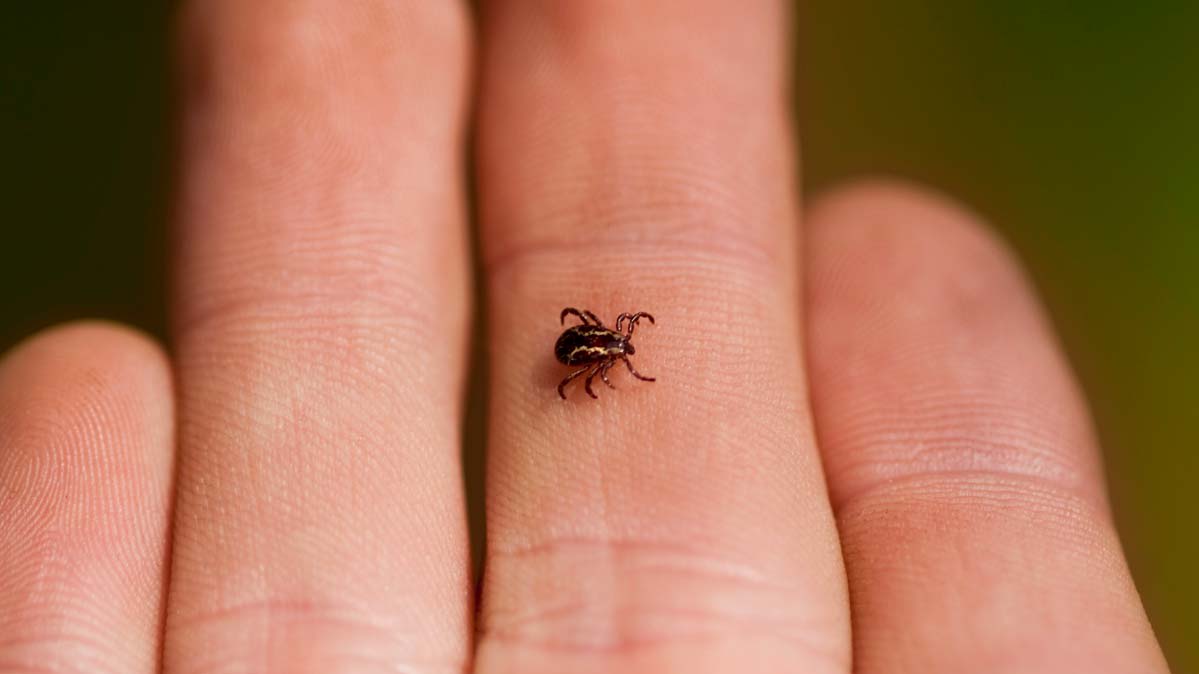
Tick exposure can occur year-round, but ticks are most active during warmer months. Here are a few tips to prevent insect bites.
Before You Go Outdoors
- Know where to expect ticks. Ticks live in grassy, brushy, or wooded areas, or even on animals. Many people get in their own yard or neighborhood.
- Treat clothing and gear with products containing 0.5% permethrin. Permethrin can be used to treat boots, clothing and camping gear and remain protective through several washings.
- Use Environmental Protection Agency (EPA)-registered insect repellents containing DEET, picaridin, IR3535, Oil of Lemon Eucalyptus (OLE), para-menthane-diol (PMD), or 2-undecanone. Always follow product instructions.
- Avoid Contact with Ticks. Avoid wooded and brushy areas with high grass and leaf litter. Walk in the center of trails.
After You Come Indoors
Check your clothing for ticks. It may be carried into the house on clothing. Any insect that are found should be removed. Tumble dry clothes in a dryer on high heat for 10 minutes to kill insect on dry clothing after you come indoors.
Examine gear and pets. Insects can ride into the home on clothing and pets, then attach to a person later, so carefully examine pets, coats, and backpacks.
Shower after being outdoors. Showering within two hours of coming indoors has been shown to reduce your risk of getting Lyme disease and may be effective in reducing the risk of other tick borne diseases. Showering may help wash off unattached and it is a good opportunity to do a check.
Check your body for ticks after being outdoors. Conduct a full body check upon return from potentially infested areas, including your own backyard. Use a hand-held or full-length mirror to view all parts of your body. Check these parts of your body and your child’s body.
- Under the arms
- In and around the ears
- Inside belly button
- Back of the knees
- In and around the hair
- Between the legs
- Around the waist
If you have been bitten and develop
symptoms within a few weeks, you should see a health care provider. Find a
CityDoc Urgent Care location near you.
Source: CDC
 Tick exposure can occur year-round, but ticks are most active during warmer months. Here are a few tips to prevent insect bites.
Tick exposure can occur year-round, but ticks are most active during warmer months. Here are a few tips to prevent insect bites.